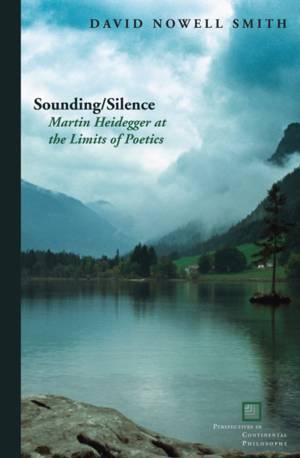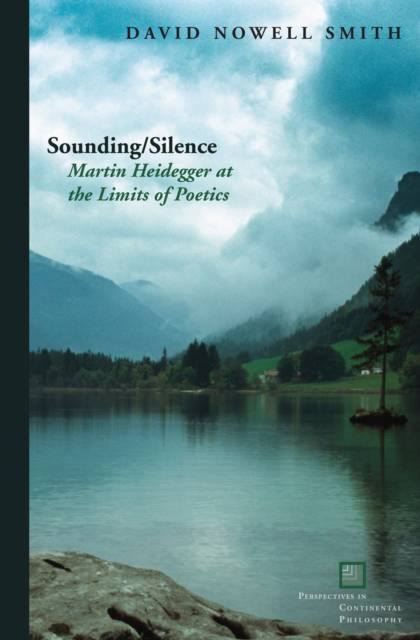
- Afhalen na 1 uur in een winkel met voorraad
- Gratis thuislevering in België vanaf € 30
- Ruim aanbod met 7 miljoen producten
- Afhalen na 1 uur in een winkel met voorraad
- Gratis thuislevering in België vanaf € 30
- Ruim aanbod met 7 miljoen producten
Zoeken
Omschrijving
Sounding/Silence charts Heidegger's deep engagement with poetry, situating it within the internal dynamics of his thought and within the domains of poetics and literary criticism. Heidegger viewed poetics and literary criticism with notorious disdain: He claimed that his Erläuterungen ("soundings") of Holderlin's poetry were not "contributions to aesthetics and literary history" but rather stemmed "from a necessity for thought." And yet, the questions he poses--the value of significance of prosody and trope, the concept of "poetic language," the relation between language and body, the "truth" of poetry--reach to the very heart of poetics as a discipline and indeed situate Heidegger within a wider history of thinking on poetry and poetics. Opening up points of contact between Heidegger's discussions of poetry and technical and critical analyses of these poems, Nowell Smith addresses a lacuna within Heidegger scholarship and sets off from Heidegger's thought to sketch a philosophical "poetics of limit."
Specificaties
Betrokkenen
- Auteur(s):
- Uitgeverij:
Inhoud
- Aantal bladzijden:
- 256
- Taal:
- Engels
- Reeks:
Eigenschappen
- Productcode (EAN):
- 9780823251537
- Verschijningsdatum:
- 2/09/2013
- Uitvoering:
- Hardcover
- Formaat:
- Genaaid
- Afmetingen:
- 157 mm x 234 mm
- Gewicht:
- 521 g

Alleen bij Standaard Boekhandel
+ 193 punten op je klantenkaart van Standaard Boekhandel
Beoordelingen
We publiceren alleen reviews die voldoen aan de voorwaarden voor reviews. Bekijk onze voorwaarden voor reviews.







